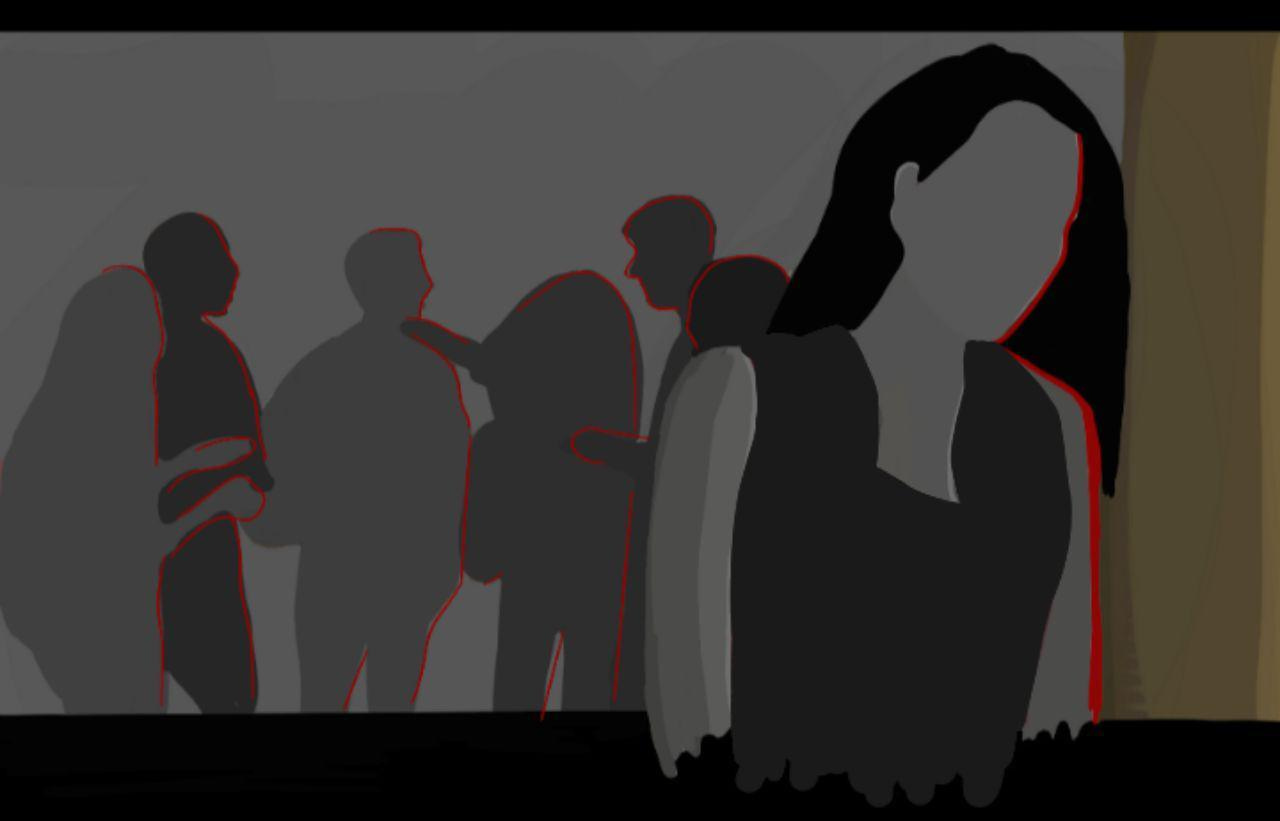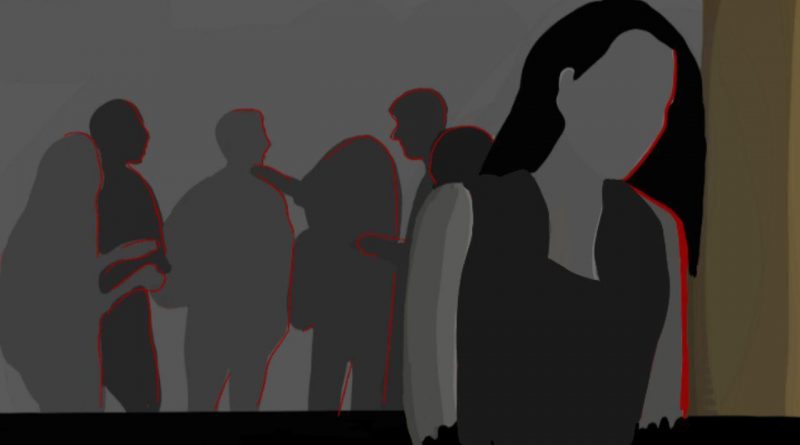Financial Integration and Friendship
In this issue of Fresh FINDings we feature research from Kenya, led by Julie Zollmann in collaboration with Cate Wanjala. Please visit the Journeys Project at Tufts University for previous studies, ongoing research, videos, maps, and artwork on refugees and migrants in the Middle East and Mediterranean, Latin America, and Africa.
This month…
- Financial Integration and Friendship
- Searching for Safety and Freedom, Refugees Receive An App
- Living on Little, Navigating Scarcity in Modern Kenya, Julie Zollmann launches her new book
Financial Integration and Friendship
By Julie Zollmann
Research has already demonstrated the importance of social networks in building economic well-being. Networks help people start a business, rent an apartment, send kids to school, and cope with shocks. Through networks, people can build a base of clients and learn about work and educational opportunities. Networks help people learn how to better navigate systems that are complex and confusing, especially to newcomers like refugees.
Displacement disrupts important networks. Refugees often lose touch with their closest friends. Families scatter around the world. These international networks still matter, but new local networks are critical for integration. Some kinds of support can only come from people in the same locale. Close friends are important not just for navigating life in a new place, but also for coping with trauma, isolation, fear, and stress, all of which also hold refugees back from building new economic lives. In Kenya, we have found these informal networks are also crucial for managing risk with small loans and gifts, for accessing remittances through friends’ M-Pesa accounts, for money and guidance in starting a business, and sometimes (once a refugee has a stable livelihood) for joining a savings group.

“Adapting to Solus” by Liyou Zewide
In our first round of interviews in Nairobi, we noticed that our refugee respondents tended to have roommates, friends, neighbors, customers, and churchmates who were mostly from their home countries. We immediately realized the importance of these relationships but wondered how refugees developed friendships with Kenyans and non-refugees who could play different roles in their adjustment to life in Kenya. Friends from outside their home country could, for example, help refugees find new types of work, develop language skills, and minimize police harassment.
So, in round two of our three-round series of interviews, we asked our respondents for more details about their friendships in Kenya: what friendship meant to our respondents, how they created new friendships, and the purposes different types of friendship served. Our data point to four emerging observations:
1. Relationships with co-nationals are important for psychological well-being and early adjustment. Many refugees seek out people from their country of origin to help them feel safe, learn to navigate the city, and commiserate over shared experiences. One male respondent explained, “For me, it is easier to make friends from my own country people who understand things in the same way I do. We trust each other. For example, we can lend each other money with no written agreement and have faith the other person will repay.”
2. Many refugees find it difficult to build close friendships with Kenyans as well as fellow refugees. Most respondents told us that friendships with Kenyans were extremely helpful, particularly in getting introductions to work opportunities, developing skills, sharing risk, accessing M-Pesa (mobile money), and building businesses. But while they knew the importance of networks, respondents had difficulty forming close friendships with Kenyans for four key reasons:
- Developing trust is difficult. Respondents said that they had many Kenya acquaintances, but that in their culture, friendship constituted a deeper bond and one typically sealed by family relationships on both sides. Instead, their Kenyan friends were often drinking buddies (for men) or co-workers, but they don’t share much about their lives. “I have four Kenyan friends…But really, we only share alcohol together and nothing more. I truly do not trust them that much because some time back a Kenyan workmate stole my phone.”
- Relationships feel out of reach. Some, particularly our Ethiopian respondents, said that language barriers and the lack of shared interactions at places like work, the mosque, school, or business made it difficult to connect with Kenyans. One told us, “Whenever I see fellow refugees with a lot of Kenyans, I admire them. I wish I could speak the language.”
- Refugees feel rejected or unwelcome. Others, particularly South Sudanese respondents, told us they felt rejected by Kenyans who they feel dislike and discriminate against them. “They [Kenyans] see refugees as if they are bad people who destroyed their place.”
- Differences in culture lead to feelings of incompatibility. Still others, including our Somali and Congolese respondents, felt that cultural differences made it difficult to connect with Kenyans. In particular, they cited coming from very communal cultures while they viewed Kenyans as more individualistic, even transactional. Some believed Kenyans did not want to be close to others. “Our cultures are not the same especially about how we give and share. Somalis give much and do not count the favors they do for you, but a Kenyan will not help you for free.”
The challenge was not just making friends with Kenyans, though. Some also said it was difficult to make close friends with co-nationals. Some still feel quite isolated or that deep and meaningful bonds are difficult to forge when their lives are so uncertain. Women in particular reported they could be taken advantage of easily by male friends, who might later expect sexual favors. Some come from cultures where women have limited interactions outside the home, and continuing the practice in Nairobi made it difficult for them to connect with others.
3. Friendships (no matter how deep) require repeat interactions, and these opportunities are less common for women. While it was sometimes easy for respondents to develop friendships with co-nationals after a single, chance meeting, making friends with Kenyans or other nationalities appeared to require repeat interaction. These interactions typically arose from church gatherings, business dealings (especially in marketplaces with many workers), school or college activities, playing football, or drinking together. Many such interactions were less accessible for women than men.
4. Women—particularly non-Swahili speakers—reported being extremely isolated, often relying heavily on a single close friend. For some, this isolation held them back socially and economically. Those from DRC and Burundi (who typically spoke some Swahili) were able to get around the city more easily, start small businesses sooner, and connect with Kenyans. But, language limitations, domestic duties, expectations of female behavior, and the lack of opportunities for exposure has preserved the isolation for many Ethiopian and Somali women. Some formed a close friendship with one neighbor, but such relationships, our respondents said, could be severed easily were one of the friends to relocate, in Kenya or abroad. Often women came to Nairobi with their husbands or other family who were the main breadwinners for the household. The gendered duties for keeping a household intact had the women staying home for years. When their relatives left or died, or if the refugee experienced divorce, they had to discover Nairobi in a whole new way. Some overcame these challenges by finding roommates who encouraged them to get out, accompanied them on outings, and encouraged them through the steps of starting a new business. A few women told us how they wished they had the courage to overcome their fears and isolation years earlier, given the benefits they realized through greater connections and financial independence.
One lesson emerging from both Jordan and Kenya is that financial health outcomes often have nothing to do with finance. How easily can you get work? How can you sort out problems when they arise? How do you access good information about bureaucratic processes and economic opportunities? So much of the answers to those questions come down to the relationships you are able to build. But relationship building is often a small part of refugee programming.
Might there be more refugee support agencies and community-based organizations could do to foster relationships, especially for women and especially with host populations? For example, they could provide financial support to enable refugee participation in cash-for-work programs, such as Kazi Mtaani, which is part of Kenyan government’s response to COVID-19. Skills training could encourage apprenticeships with Kenyan business owners. Language intensive courses—particularly in English—could be offered to both refugees and host communities to encourage exchange. Providers may have to make a particular effort to encourage non-Swahili speaking women to get out of the house, learn new skills, gain confidence, and develop relationships outside of their families. This could take many forms, including skill swaps and social activities targeting adult women, particularly ones that can involve their children or that provide childcare.
Whether displaced or not, financial health grows in large part from the resources that networks unlock. With the networks of displaced people disrupted, rebuilding refugees’ financial health requires a little help from their friends.
Searching for Safety and Freedom, Refugees Receive An App
By Kim Wilson and Madison Chapman
Migration tech is all the rage. Fintechs, NGOs, UN actors assume that migrants and refugees want apps designed especially for them. In this essay and blog post, two of our researchers tease apart the fad to show what migrants and refugees value in their tech solutions.
Julie Zollmann Launches New Book
Please join us for the launch of Julie Zollmann’s book, Living on Little, Navigating Scarcity in Modern Kenya on Thursday, November 19th, 2020 from 3:00 pm – 5:00 pm East Africa Time. Click here to register for the virtual event. As part of the event, Julie will be delivering the FSD Kenya Annual Lecture, co-sponsored by the University of Nairobi, Institute for Development Studies.
Fresh FINDings is made possible through a partnership among Tufts University, the Katholische Universität Eichstätt – Ingolstadt (Catholic University or KU), the International Rescue Committee and GIZ. Fresh FINDings also features work sponsored by Catholic Relief Services, Mercy Corps, and the International Organization for Migration.
Contact: Kimberley.Wilson@tufts.edu

